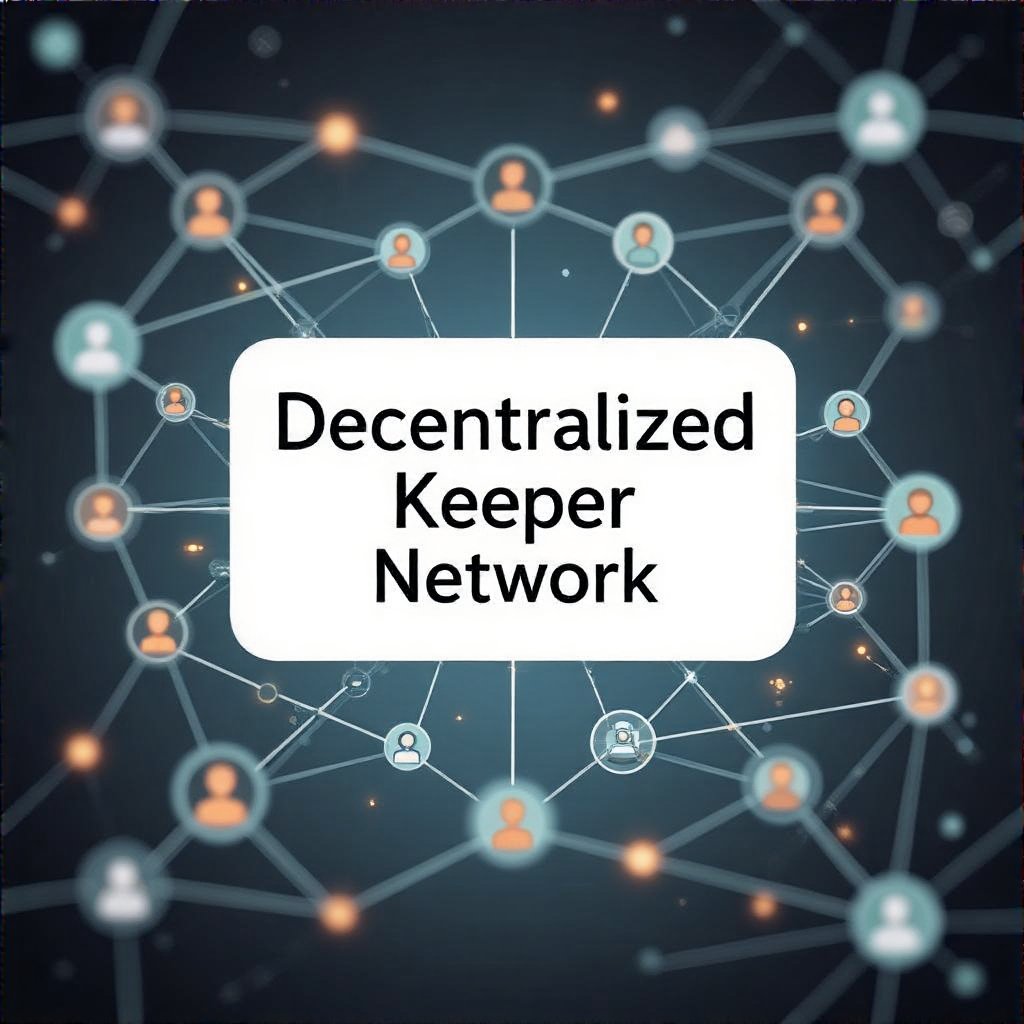Challenges in Decentralized Keeper Networks for DeFi

Decentralized keeper networks automate DeFi operations by monitoring on-chain conditions and triggering contract actions. Yet beneath the surface, governance, security, and incentive design create a complex web of risks. From a Legal Promise vs Code Reality perspective, it’s essential to examine where written commitments diverge from coded behavior and how this mismatch can threaten trust, fairness, and resilience.
- Overview
- Consensus & Coordination
- Security & Threats
- Incentives & Governance
- Collusion Risks
- Designing Safer Architectures
- Real-World Implications
- FAQ
Overview: Keeper Networks in DeFi
Keeper networks are the backbone that turns conditional logic into timely on-chain actions. They rely on distributed actors to verify events, compute triggers, and submit transactions in a coordinated fashion. The conceptual appeal—trustless automation—depends on robust incentives, resilient infrastructure, and transparent governance. Yet the reality is that upgradeability risks, potential collusion, and opaque governance can create governance backdoors that code alone cannot close. As we compare the CoinDesk analysis and practical deployments, the thread becomes clear: decentralization is not a mere topology, but a set of accountable mechanisms that must be designed and audited with care.

Consensus and Coordination
Achieving distributed consensus among keepers is nontrivial. Without explicit coordination, actions can duplicate or conflict, undermining efficiency and safety. A rigorous approach includes randomized selection, verifiable randomness, and timely updates to prevent predictable advocacy by any subset of keepers. The governance model must ensure that changes to logic or parameters cannot be hijacked without broad consensus. For practitioners, the mismatch between documented governance promises and actual on-chain behavior is a critical blind spot that auditors must highlight. See how vulnerability management practices are evolving in smart-contract ecosystems in our internal explorations and industry reports.
Real-world lessons from vulnerability management in smart contracts show that even well-intentioned upgrades can open attack vectors if upgrade paths are not tightly controlled. As described by Cointelegraph, ongoing validation of governance processes is essential to maintain decentralization in practice.
Security and Attack Vectors
Keeper networks face a spectrum of threats—from front-running exploits to collusion among nodes. A hidden back door could emerge if incentives do not align with honest participation. Regular security reviews, cryptographic proofs, and multi-party computation (MPC) can raise the bar for adversaries. External analyses, including insights from CoinDesk, emphasize layered defenses and robust attestation to reduce reliance on any single actor. In practice, teams should integrate risk-aware design choices into every deployment stage, from testing to post-launch governance.
Beyond technical risk, economic incentives drive behavior. When rewards are misaligned, honest participants may be outbid by those who game the system, introducing centralization pressures. See additional context in wallet-management patterns to understand how diversified control can reduce single-point risk.

Incentives and Stakeholder Management
Incentive design must reward accurate sensing and timely reporting while penalizing negligence or collusion. Slashing conditions and reputation-based systems can deter bad actors, but they require transparent rules and reliable enforcement. Without credible penalties and clear governance rights, a subset of keepers may capture outsized influence. This aligns with broader debates on decentralized finances’ governance, where the Legal Promise vs Code Reality tension often emerges in upgrade votes and parameter changes. For broader reading, see how regulators and communities weigh for clarity in related crypto governance discussions.
Collusion Risks
Even in decentralized setups, collusion risk persists. A small coalition could delay responses, bias outcomes, or strategically withhold actions. Projects like PowerPool illustrate how reputation systems and randomized selection reduce collusion incentives and promote fair participation. As noted by industry coverage, decentralization requires active mechanisms to prevent tacit control drift. See Cointelegraph for additional perspectives on maintaining fairness in keeper ecosystems. For practical context, consider the red flags and prevention tips discussed in project abandonment signals.
To tie governance to practice, teams should publish audit results and governance decisions in a machine-readable format, enabling independent verification by stakeholders. This mirrors broader transparency standards advocated in DeFi governance literature and helps offset the “smokescreen” risk described in our style-guided analyses.
Designing Safer Architectures
Strengthening keeper architectures requires a layered approach: cryptographic proofs, verifiable randomness, MPC, and frequent, transparent audits. The goal is to minimize single points of failure while preserving decentralization. Best practices include explicit upgrade governance, clearly defined attacker models, and ongoing post-implementation monitoring. In practice, teams should align on a formal upgrade policy to prevent the kind of ambiguous promises that undermine trust. For readers exploring related architectural concerns, see the BSC ecosystem project guides and ongoing discussions in DAO treasury governance to understand how similar safeguards scale across ecosystems.
| Practice | Impact | Notes |
|---|---|---|
| Randomized keeper selection | Reduces predictability | Implements fairness in assignment; prevents collusive plotting. |
| Merkle proofs & attestation | Improved verifiability | Helps auditors confirm data integrity without trusting any single node. |
| Slashing & reputation | Deterrence | Requires transparent rules and reliable enforcement. |
Real-World Implications
Decentralized keeper networks underpin the reliability of DeFi, but the path from promise to practice hinges on governance realism and code discipline. When upgrades are too flexible or governance votes are opaque, the ecosystem bears elevated risk of misfires. Continuous updates, independent audits, and community-driven transparency are not luxuries—they are prerequisites for sustainable DeFi infrastructure. The ongoing dialogue around regulation, openness, and safety will shape how keeper networks evolve in the coming years.
FAQ
Q: What is the primary risk in keeper networks? A: Misaligned incentives and governance weaknesses that allow collusion or delayed responses. Vulnerability management practices can mitigate but not entirely eliminate this risk.
Q: How can investors assess keeper architecture quality? A: Look for auditable governance processes, explicit upgrade policies, and evidence of ongoing security assessments. For related risk awareness, see red flags in crypto projects and tokenomics design.
